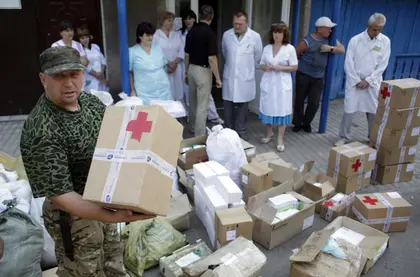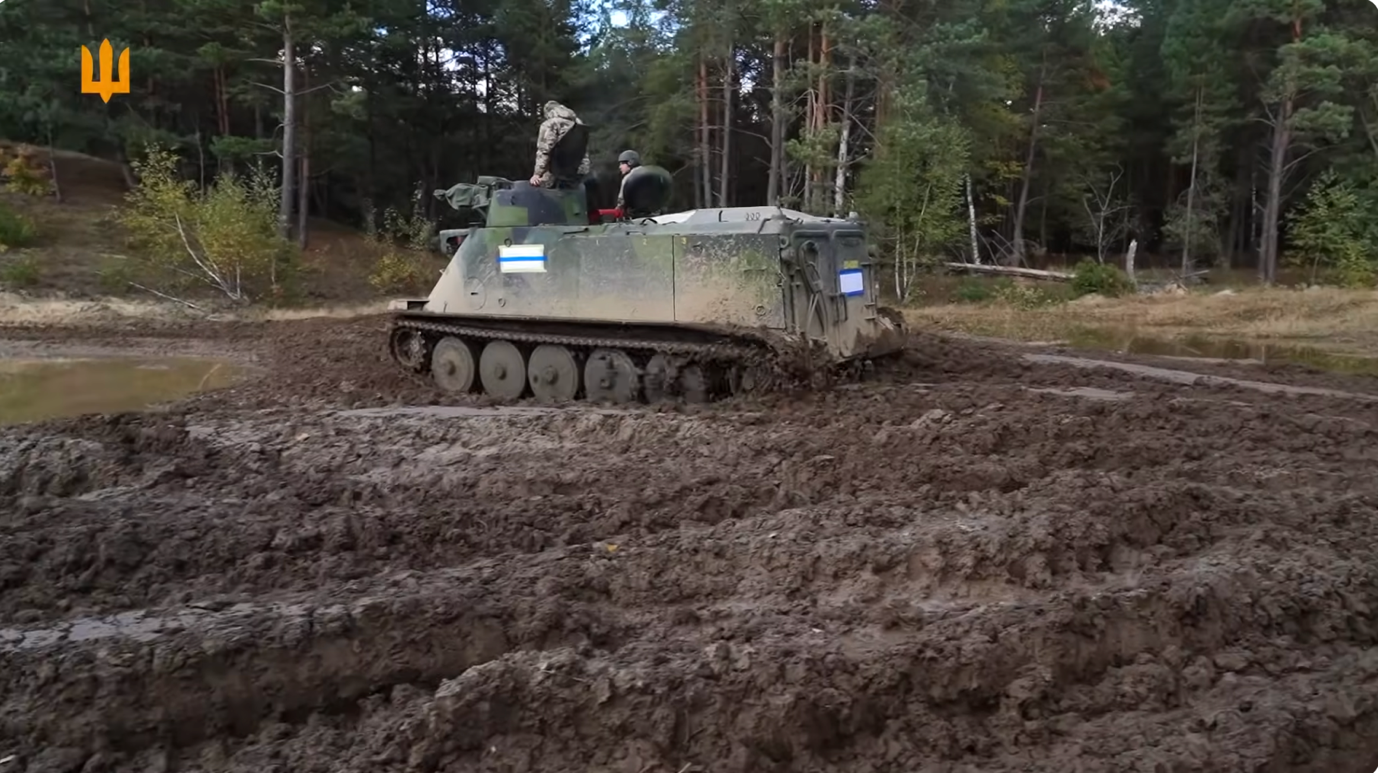“Due to the complex humanitarian and social situation in the Donbas, Ukraine President Poroshenko took the initiative to send to Luhansk Oblast international humanitarian aid missions,” the ministry said in an official statement on Aug. 11. “In addition to goods, prepared by the Ukrainian side, the mission will also include an international component and, in particular, humanitarian assistance provided by the International Committee of the Red Cross, the United States, the EU and Russia.”
“Logistical support of the international humanitarian relief mission, including its delivery and distribution, will be provided by the International Committee of the Red Cross and Ukraine,” the Ministry added.
Laurent Corbaz, the ICRC’s head of operations for Europe and Central Asia, said in a statement it is “urgent that aid reaches people in Luhansk and in other areas in the eastern part of the country, which have sustained heavy fighting over the past weeks.”
The ICRC said it met with the Ukrainian and the Russian authorities and shared a document which specifies the manner in which such an operation can be carried out.
A senior official in Ukraine’s presidential
administration told the Kyiv Post that “Russia will have a formal part in the convoy, but there will be no Russian [military] forces, no soldiers.”
Moreover, the ICRC added that it “does not accept armed escorts” as part of the relief mission.
Ukraine had previously objected to Russian involvement in relief efforts, fearing that a humanitarian mission could be used as a cover for an invasion of Russian soldiers.
Earlier on Aug. 11, Russia said it would send a “humanitarian convoy” into Ukraine as part of a coordinated mission with the
International Red Cross, according to a Kremlin statement.
However the ICRC in Kyiv denied cooperating with Russian on plans for a humanitarian convoy to eastern Ukraine, according to the RBC news agency, citing ICRC representative Ashot Astabatsyan.
Later, Russian Foreign Minister Sergei Lavrov said that the details of the humanitarian operations would take place under the auspices of the Red Cross in cooperation with Kyiv.
“We have agreed on all the details with the leadership of Ukraine,” he was quoted as saying by Itar-Tass.
Still, a presidential administration official said that with Russia participating in the convoy the risk of war between the countries “goes up.”
There have been recent threats of Russian incursions into the country. On Friday, a so-called humanitarian convoy accompanied by Russian military personnel and military vehicles advanced toward the Ukrainian border with the intention of crossing into the country late on Aug. 8, but it stopped short of the frontier, said Deputy Chief of the Presidential Administration Valeriy Chaly.
The presidential administration official who spoke with the Kyiv Post on Aug. 11 said the move was “nearly a real disaster, nearly an invasion.”
“It was pure Russian aggression, Russian will,” he said.
Speaking on a Ukrainian TV news program, Chaly said the transit of the convoy could have provoked a full-scale war between the countries. He added that Russia is welcome to participate in the humanitarian mission to Luhansk only if it followed international agreements and adhered to Ukrainian legislation under the auspices of the Red Cross.
Speaking on ICTV’s “Freedom of Speech” program late on Aug. 11, Chaly complained that Russian-backed separatists twice refused to engage in talks in order to coordinate the arrival of humanitarian assistance in areas they control, including the city of Luhansk and that region’s capital.
In past weeks Russia has built up its military presence on its border with Ukraine, massing some 12,000 troops, according to NATO, and carried out war games with fighter jets and combat helicopters.
Luhansk, a city about 20 miles form the Russian border with a pre-war population of some 450,000 people that has been reduced to about 250,000 since the onslaught of Ukraine’s military operation in mid-April, has been among the hardest hit cities in the eastern region. It has been plagued by heavy fighting in recent weeks and bombarded by shells. As a result, the city has been without electricity and water for more than a week.
Kyiv Post editor Christopher J. Miller can be reached at [email protected] and on Twitter at @ChristopherJM.
Editor’s Note: This article has been produced with support from www.mymedia.org.ua, funded by the Ministry of Foreign Affairs of Denmark and implemented by a joint venture between NIRAS and BBC Media Action, as well as Ukraine Media Project, managed by Internews and funded by the United States Agency for International Development.
You can also highlight the text and press Ctrl + Enter




